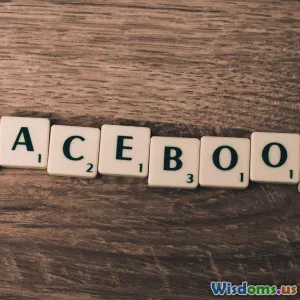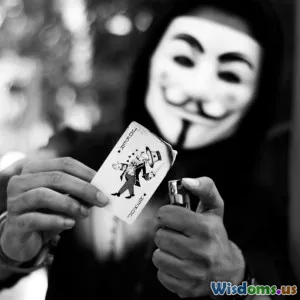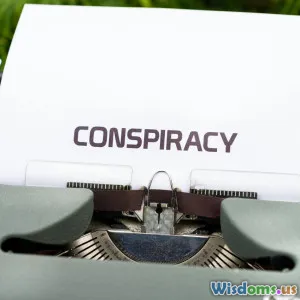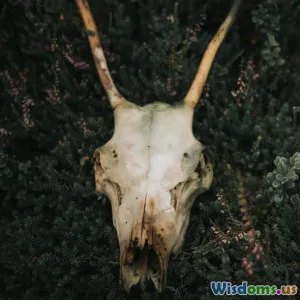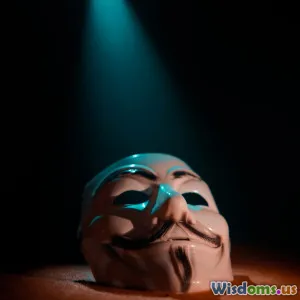
Secret Organizations and Their Political Power
9 min read Explore how secret organizations have wielded political power throughout history, shaping nations and influencing global events. (0 Reviews)
Secret Organizations and Their Political Power: The Hidden Faces Behind Global Influence
Secret organizations have long fascinated historians, conspiracy theorists, and the curious public alike. These enigmatic groups operate from the shadows, weaving their influence into the political fabric of societies around the world. But what exactly are secret organizations, and how have they wielded such political power? This article delves into the covert realms of these groups, unraveling their origins, operations, and real-world impact.
Introduction: The Veil of Secrecy and Power
Hidden societies have existed across centuries and continents, often surrounded by myths and intrigue. Their secrecy fuels speculation—do they truly command political forces behind the scenes, or are they merely sensational artifacts of cultural imagination?
Historically, many such groups claimed exclusive knowledge, networking powerful figures to shape political outcomes subtly or overtly. Investigating these organizations provides a lens to understand how unseen networks may sway decisions, governance, and global events.
Origins and Examples of Secret Organizations with Political Influence
The Illuminati: Enlightenment’s Hidden Hand
Perhaps the most famous secret society, the Bavarian Illuminati was founded in 1776 by Adam Weishaupt. Initially an Enlightenment-era group advocating reason and secular governance, it attracted intellectuals and politicians alike. Though disbanded officially by 1785, conspiracy theories today often credit the Illuminati with masterminding global political events—from revolutions to modern-day governance structures.
Though historical evidence for enduring Illuminati operations is sparse, their symbolic legacy sparks discussions on elite influence.
Freemasons: Building Geopolitical Networks
Freemasonry, dating back to the late 16th to early 17th centuries, is one of the broadest and most enduring secret organizations. Known for cryptic rituals and hierarchical structure, Freemasons have included influential statesmen such as George Washington and Winston Churchill.
The fraternity’s philanthropic and social aspects often mask its potential as a conduit for informal political networking. Historian Jessica Harland-Jacobs highlights in Builders of Empire that Freemasons played roles in colonial administration — subtly shaping policies to favor broader imperial loyalties.
The Skull and Bones Society: America’s Invisible Elite
At Yale University, the Skull and Bones society selects a small, elite group of students annually. Graduates have included U.S. presidents like George H.W. Bush and influential leaders. Behind secret rituals, the society bonds a network facilitating mutual advancement within political, financial, and legal power structures.
Author Alexandra Robbins' Secrets of the Tomb suggests that membership offers avenues for insider influence on national policy and international affairs.
Mechanisms of Political Power Through Secrecy
Networking and Influence Peddling
Secret organizations are often powerful because they provide access to exclusive circles. Members can leverage these networks for political gain, influencing appointments, legislation, and strategic decisions subtly.
These relationships, forged away from public scrutiny, bypass standard checks and balances, allowing accelerated trust-building and alliance formation.
Control of Information and Propaganda
Some secret societies manipulate information flows to affect public opinion or political outcomes. For example, the Ku Klux Klan in the late 19th and early 20th centuries used fear and secrecy to alter political landscapes in the southern United States, affecting voter participation and legislation through intimidation.
More modern groups may seek to shape narratives through covert media relationships or disinformation.
Orchestrating Revolutions and Regime Changes
Historically, groups such as the Carbonari in 19th century Italy sought political reform and even regime change through clandestine operations. Similarly, the Bolsheviks orchestrated secretive organization-building and strategy planning leading to the 1917 Russian Revolution.
Secret organizations’ ability to mobilize covert cells provides a powerful tool for influencing political trajectories when open dissent is suppressed.
Case Studies: Tangible Political Impact
The Role of the Mafia in Italian Politics
Though primarily criminal, the Sicilian Mafia has exerted deep political influence. By controlling local economies, bribing officials, and intimidating voters, mafiosi embedded themselves into the political apparatus.
Investigations in the 1990s revealed concrete ties between politicians and Mafia bosses, demonstrating how covert organizations exploit governance weaknesses.
The Bilderberg Group: Elite Dialogues and Policy Shaping
Founded in 1954, this group hosts annual invite-only meetings for political leaders, finance magnates, and intellectuals. Though not secret in existence, its confidentiality about discussions fuels speculation of elite policy coordination.
While participants assert the group is merely a forum for informal discussion, critics argue it subtly shapes international political and economic agendas.
Operation Gladio: NATO’s Secret Stay-Behind Arm
During the Cold War, NATO organized networks across Europe to resist potential Soviet invasions, operating clandestinely under national governments' radars. This example shows how secret organizations can be officially sanctioned yet hidden, influencing domestic politics and intelligence operations.
Revelations of Gladio’s involvement in manipulating political events raised questions about the balance between secret defense strategies and democratic transparency.
Ethical and Democratic Implications
The existence and actions of secret organizations wielding political power challenge transparency and democratic norms. When decisions impacting entire populations are influenced beyond public scrutiny and accountability, it poses risks of undemocratic governance.
As political scientist Jan van Dijk notes, power devoid of transparency can conflict with concepts of justice and equality. Citizens often demand clarity on who influences policies, underpinning trust in institutions.
Yet, some secret organizations advocate positive social changes or provide protective functions under authoritarian regimes, complicating blanket judgments.
Conclusion: Illuminating the Shadows
Secret organizations have undeniably played roles in shaping political landscapes, be it through networking, clandestine operations, or elite dialogs. While some influence is benign or benignly conceived, others raise profound questions about transparency, legitimacy, and public trust.
Understanding the historical and contemporary roles of these groups encourages vigilance and informed civic engagement. Knowledge is the key to not only demystify but to ensure that secretive power does not undermine democratic governance.
As history evolves, so too will the forms and methods of these shadowy actors—underscoring the importance of scrutiny and balance in the interplay between secrecy and power.
References
- Harland-Jacobs, Jessica. Builders of Empire: Freemasonry and British Imperialism, 1717–1927. University of North Carolina Press, 2007.
- Robbins, Alexandra. Secrets of the Tomb: Skull and Bones, the Ivy League, and the Hidden Paths of Power. Little, Brown and Company, 2002.
- Dijk, Jan van. “The Transparent Society? Ethical Considerations.” The Journal of Information Ethics, vol. 25, no. 1, 2016.
- David V. Gioe, “NATO’s Secret Cold War: Operation Gladio and Counterterrorism.” Journal of Cold War Studies, 2018.
Rate the Post
User Reviews
Popular Posts










